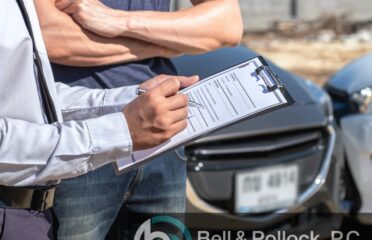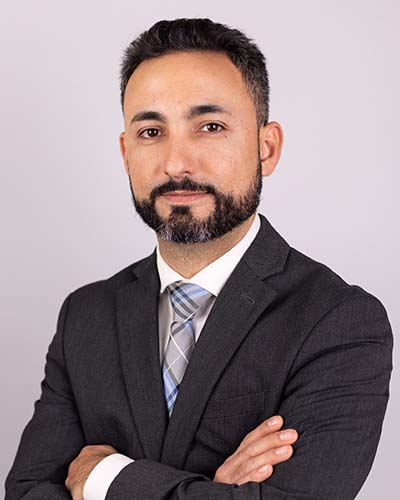What to Expect During Your First Consultation with a Tampa Personal Injury Lawyer
Accidents can be life-altering, leaving victims with physical injuries, emotional distress, and financial burdens. If you’ve been injured due to someone else’s negligence, seeking legal guidance is a critical step toward obtaining justice and fair compensation. Scheduling a consultation with a Tampa personal injury lawyer is the first step in this process.
For many, the idea of meeting with a lawyer can feel intimidating or uncertain. What should you bring? What questions will they ask? What will they expect from you? In this guide, we’ll break down everything you need to know about your first consultation, giving you a clear understanding of what to expect and how to prepare.
Why a Consultation is Important
Understanding Your Case
The initial consultation is an opportunity for the lawyer to understand the details of your case. This allows them to assess whether you have a viable claim and what potential compensation you might be entitled to.
Building a Relationship
The consultation is also a chance for you to evaluate the lawyer and determine if they’re the right fit for your needs. A good lawyer-client relationship is based on trust, communication, and mutual understanding.
Setting Expectations
During the meeting, the lawyer will outline the legal process, explain their role in your case, and discuss what you can expect moving forward. This clarity can ease your concerns and help you feel more confident about pursuing your claim.
Preparing for Your First Consultation
Gather Relevant Documents
Bringing all relevant documents to your first consultation can make the process more efficient and productive. Examples include:
- Accident reports (police reports, incident reports, etc.).
- Medical records and bills related to your injuries.
- Photos or videos of the accident scene or your injuries.
- Insurance information, including your policy and any correspondence with insurers.
- Witness contact information, if available.
Prepare a Timeline of Events
Having a clear timeline of the events leading up to and following the accident can help the lawyer understand the context of your case. Include details such as:
- The date, time, and location of the incident.
- Actions taken immediately after the accident.
- Medical treatments received.
- Communications with insurance companies or other parties involved.
Write Down Your Questions
Take some time before your consultation to think about what you want to ask the lawyer. Common questions include:
- Do you have experience handling cases like mine?
- What is the potential value of my case?
- How long do you expect the process to take?
- What fees will I be responsible for, and how are they structured?
What Happens During the Consultation
Introducing Yourself and Your Case
Your lawyer will begin by asking you to share the details of your case. They’ll want to know:
- How the accident occurred.
- The injuries you sustained.
- The impact the accident has had on your life.
This initial discussion helps the lawyer evaluate the strength of your case and identify any potential challenges.
Assessing Liability
One of the lawyer’s primary goals during the consultation is to determine who may be held liable for your injuries. They’ll ask questions to establish whether another party’s negligence contributed to the accident and if you share any fault under Florida’s comparative negligence laws.
Explaining the Legal Process
Your lawyer will explain the steps involved in pursuing a personal injury claim, including:
- Filing the necessary paperwork.
- Negotiating with insurance companies.
- Gathering evidence and expert testimony.
- Preparing for trial, if needed.
This overview gives you a roadmap of what to expect as your case progresses.
Discussing Potential Compensation
Based on the details you provide, the lawyer will discuss the types of damages you may be entitled to, such as:
- Medical expenses.
- Lost wages.
- Pain and suffering.
- Property damage.
Reviewing Fee Structures
Most Tampa personal injury lawyers operate on a contingency fee basis, meaning they only get paid if you win your case. During the consultation, the lawyer will explain their fee structure, any additional costs (like court filing fees), and how payments will be handled.
What the Lawyer Will Expect from You
Honesty and Transparency
To build a strong case, your lawyer needs accurate and complete information. Be honest about all aspects of your case, including any prior injuries, pre-existing conditions, or actions you’ve taken since the accident.
Commitment to the Process
Personal injury cases can take time, and your lawyer will expect you to remain engaged and cooperative throughout the process. This includes attending medical appointments, providing requested documents, and being available for meetings or depositions.
Open Communication
Your lawyer will expect you to keep them informed about any changes in your situation, such as additional medical treatments, new injuries, or communications from the insurance company.
Common Questions Asked During a Consultation
About the Accident
- Where and when did the accident occur?
- What were you doing at the time of the accident?
- Were there any witnesses?
About Your Injuries
- What injuries did you sustain?
- Have you sought medical treatment?
- How have your injuries affected your daily life and ability to work?
About Your Insurance
- Do you have auto, health, or other relevant insurance?
- Have you already filed a claim?
- Have you spoken with the other party’s insurance company?
After the Consultation: Next Steps
Deciding Whether to Hire the Lawyer
After your consultation, take some time to reflect on whether the lawyer is a good fit for your needs. Consider factors such as:
- Their experience and knowledge.
- Their communication style and responsiveness.
- Your comfort level with them.
Formalizing the Agreement
If you decide to move forward, the next step is to sign a retainer agreement. This document outlines the terms of the lawyer’s representation, including fees and responsibilities.
Beginning the Legal Process
Once you’ve hired a lawyer, they’ll start working on your case. This may involve further investigations, filing claims, and negotiating with insurance companies. Your lawyer will keep you informed at every stage.
The Benefits of a Consultation
Gaining Clarity
A consultation helps you understand your rights, the legal process, and the potential outcomes of your case.
Reducing Stress
Speaking with a lawyer can alleviate the stress of navigating legal complexities on your own.
Building Confidence
Knowing you have a skilled advocate on your side can give you confidence and peace of mind as you pursue your claim.
Final Thoughts
Your first consultation with a Tampa personal injury lawyer is a critical step in seeking justice and fair compensation for your injuries. By preparing thoroughly, being honest and open, and asking the right questions, you can make the most of this initial meeting.
Remember, a skilled lawyer is not just a legal expert but also a trusted ally who will guide you through every stage of the process. Don’t hesitate to reach out and schedule a consultation—taking that first step could make all the difference in your recovery and future.
Let this meeting mark the beginning of a journey toward healing, justice, and financial security. Whether it’s clarity you seek or confidence in pursuing your case, your first consultation is the gateway to making informed decisions about your legal rights.
To know more details contact with us
Name Of Law Firm: Pencheff & Fraley Co. LPA
Address: 100 N Ashley Dr Suite 600, Tampa, FL 33602, United States
Phone: 813-797-5070
Website URL: https://www.pencheffandfraley.com










